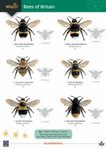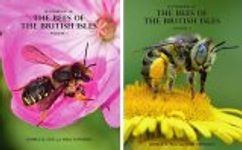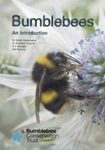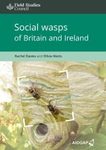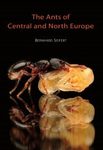![The Art of the Bee The Art of the Bee]()
Click to have a closer look
About this book
Contents
Customer reviews
Biography
Related titles
About this book
The impact of bees on our world is immeasurable. Bees are responsible for the evolution of the vast array of brightly coloured flowers and for engineering the niches of multitudes of plants, animals, and microbes. They've painted our landscapes with flowers through their pollination activities, and they have evolved the most complex societies to aid their exploitation of the environment.
The parallels between human and insect societies have been explored by countless sociobiologists. Traditional texts present stratified layers of knowledge where the reader excavates levels of biological organization, each building on the last. In The Art of the Bee, Robert E. Page, Jr., delves deep into the evolutionary history and the sociality of bees. He presents fundamental biology – not in layers, but wrapped around interesting themes and concepts, and in ways designed to explore and understand each concept. Page uses the social contract as a way to examine the complex social system of bee societies, a contract that has been written over millions of years of social evolution on the fabric of DNA. The Art of the Bee examines the coevolution of bees and flowering plants, bees as engineers of the environment, the evolution of sociality, the honey bee as a superorganism and how it evolves, and the mating behaviour of the queen. The resulting book explores the ways human societies and bee colonies are similar – not from a common ancestry with shared genes for sociality, but from shared fundamentals of political philosophy.
Contents
Preface
Chapter 1. Environmental Artists
Chapter 2. How Bees "Paint" Their Local Environment
Chapter 3. Environmental Engineering
Chapter 4. The Social Contract
Chapter 5. The Superorganism
Chapter 6. Reproductive Competition
Chapter 7. How to Make a Superorganism
Chapter 8. How a Superorganism Evolves
Chapter 9. The Song of the Queen
Epilogue
Resources
Index
Customer Reviews
Biography
Robert E. Page, Jr., is Regents Professor Emeritus at Arizona State University and Professor Emeritus at the University of California, Davis. He has published more than 230 research papers and articles and authored two other books, The Spirit of the Hive (Harvard University Press, 2013) and Queen Rearing and Bee Breeding, with Harry H. Laidlaw (Wicwas Press, 1997). In 2009, he was a Fellow of the Wissenschaftskolleg of Berlin. In 2009, he was a Fellow of Wissenschaftskolleg of Berlin. Page is an elected member of the American Academy of Arts and Sciences, the Brazilian Academy of Science, Leopoldina (the German National Academyof Science), and the California Academy of Science. He is a recipient of the Alexander von Humboldt Senior Scientist Award (Humboldt Prize, 1995), the Carl Friedrich von Siemens Fellowship (2018), James W. Creasman Award of Excellence at ASU (2018), and the Distinguished Emeritus Award at UCD (2019).












